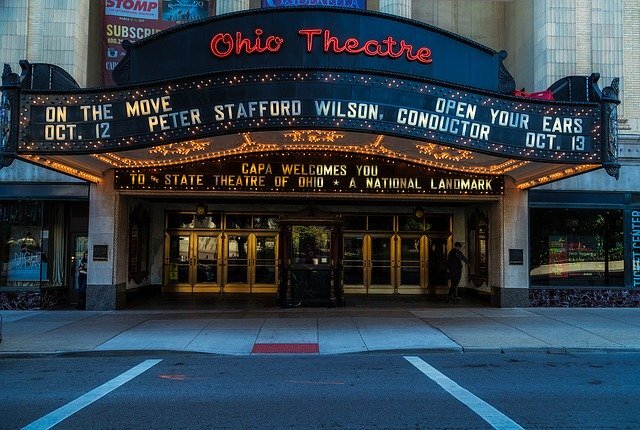Film Vs Movies – What’s right? Where do They Come from?
As the UK, USA, Canada and Australia share more and more media with each other, there is increasing confusion over the “right way” to say certain things. Pavement or sidewalk? Ditch, Dyke, or Culvert? Cinema, Theatre, or Movies? Very confusing! If you are wondering which way to describe a film is “correct” I have bad news. They are all correct, in different places.
People from the United Kingdom go to the ‘Cinema’ to watch a ‘Film’. Cinema comes from the French cinématographe, which became cinéma. Film is a description of the brown cellulose strip that the visual images are recorded on. I’m English so I see a Film at the Cinema.
People from the USA tend to go to a ‘Movie Theater’ (UK spelling theatre, USA spelling theater) ‘Theater’ (common in Los Angeles), or ‘Movies’ to see a ‘Movie’. The USA is a big place with many language influences so there are lots of different ways to describe films. When films were first introduced to USA they were described as Moving Pictures. The first films by Louis Lumière and Thomas Edison were less fluid (moving easily and smoothly) than the films we know now. The world had never seen anything other than a static (not moving) picture before. The natural description then was that these were pictures that moved! They were first shown at Theaters, and music was played to accompany the soundless moving pictures. So naturally moving pictures became movies, and theaters began to specialise in only showing movies, so they were renamed Movie Theaters.
So far so good right? Well sorry but Australians go to the Cinema to see a Movie! The English language is more of an art than a science!
My tip when learning English is to pick a country and learn the vocabulary for that country. It helps to be aware of other meanings in other countries, but it’s a lot to learn all at once, and can be very confusing.
If you would like to learn British English, click the button below to find out more about the lessons I offer, or click the other button below to contact me and book a free trial online English lesson.

